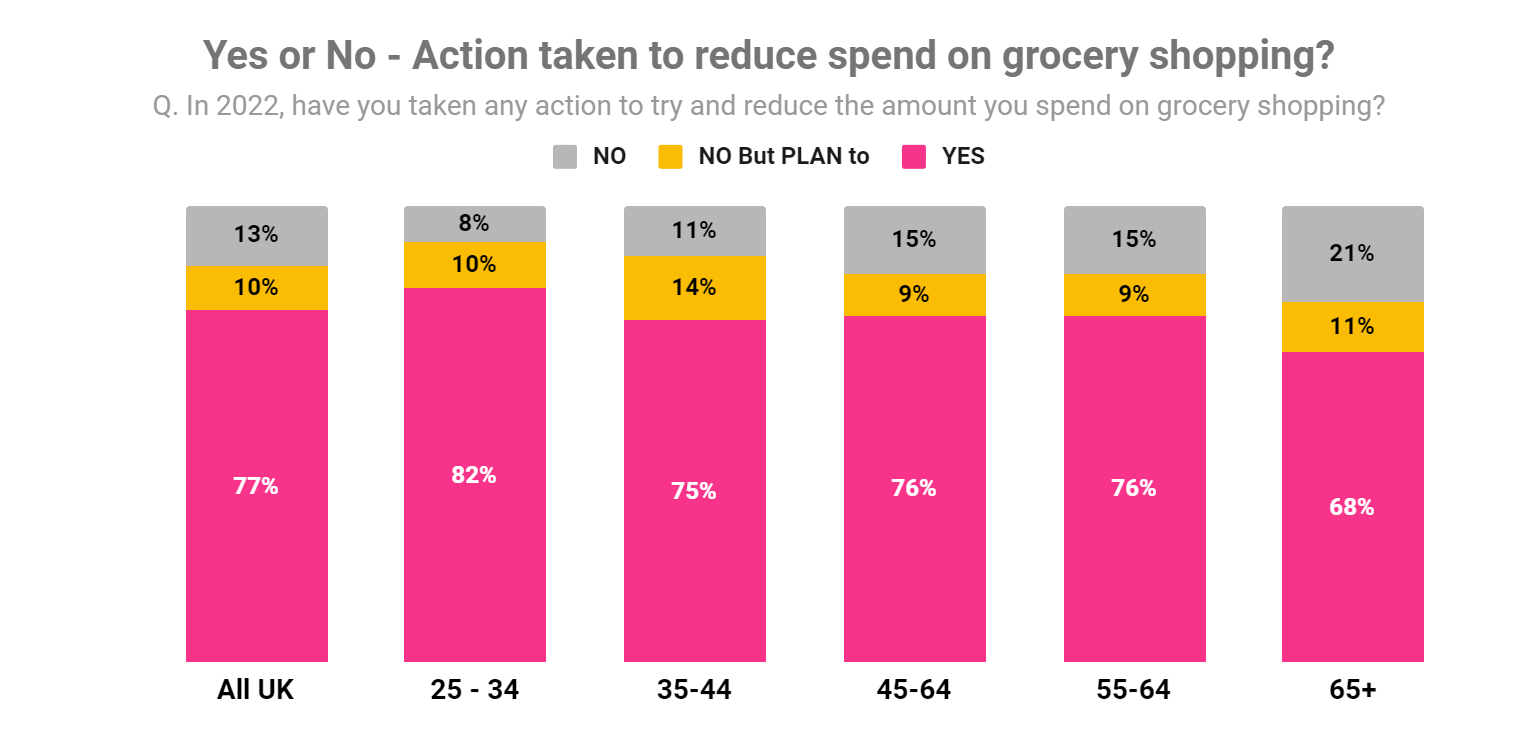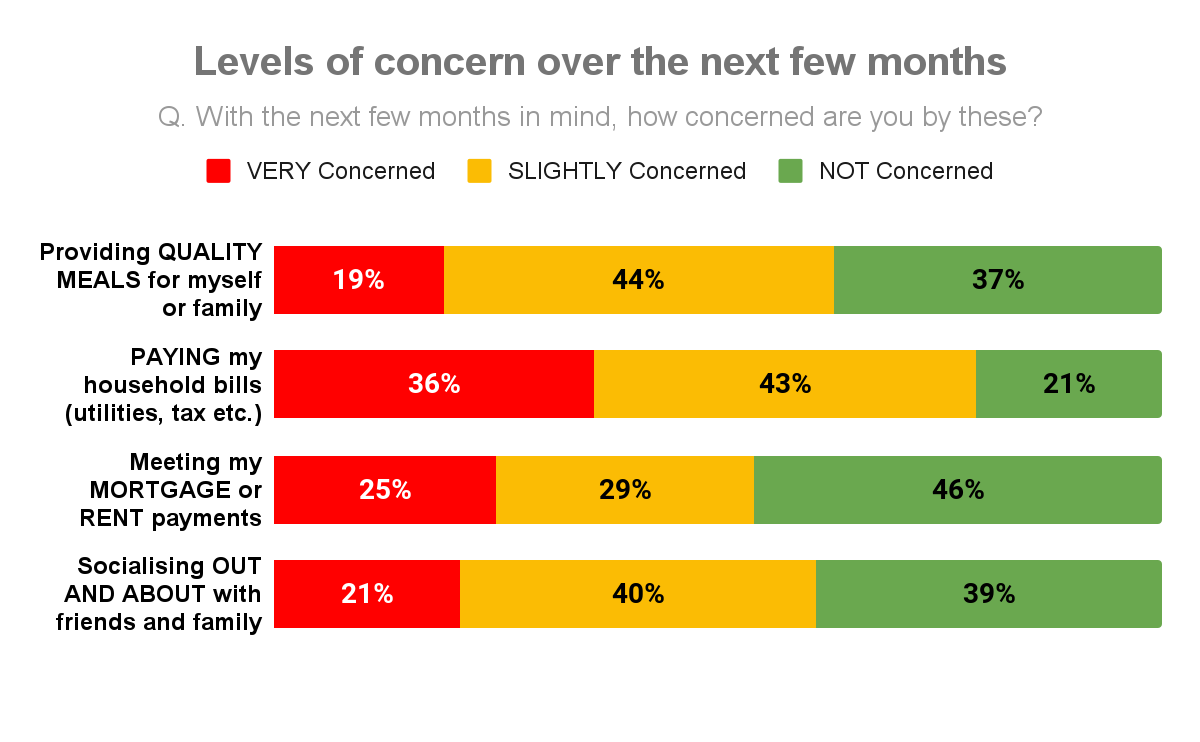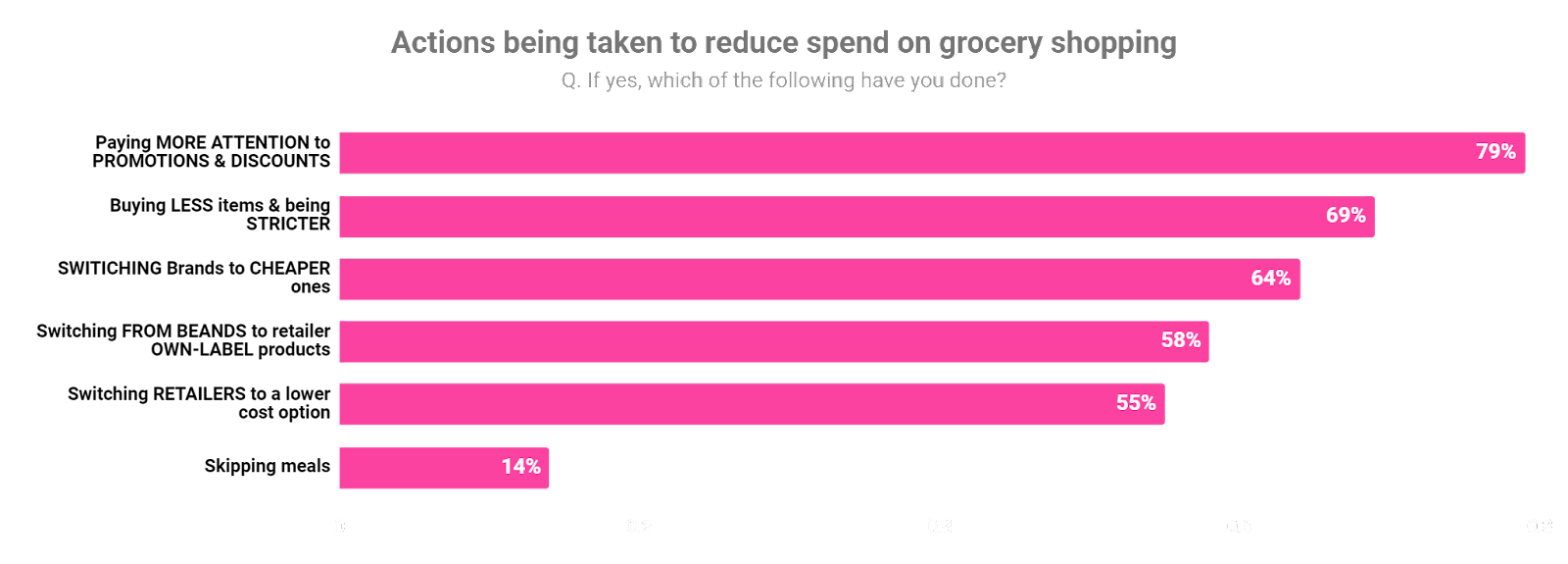Half of Brits concerned about providing meals for their family as cost of living crisis intensifies
Two thirds (63%) of households in the UK are experiencing a reduction in disposable income, increasing to 67% for those on lower than average household income, half (48%) of whom say their disposable income has reduced more than 10%. The impact of this on grocery purchases is clear; over three quarters (77%) have taken action to reduce their spend on supermarket shopping, with a further 10% planning to do so. For those aged 25 – 34, this figure is the highest, with 92% having already reduced or planning to cut their grocery spend.

In addition to concerns about grocery spend, a whopping 8 in 10 (79%) of Brits are concerned about having enough money to pay their household utilities bills this winter, with over one third (36%) saying they are very concerned about this. More than half (54%) are also worried about falling behind on rent or mortgage payments, with a quarter (25%) of consumers saying this is a major concern. For the younger generation aged 25 – 34, the stats are even higher, with two thirds (65%) concerned about not meeting rent or mortgage payments, one third (31%) of which are extremely concerned about this.

In a bid to save money on their weekly shop, 8 in 10 (79%) are paying more attention to promotions and discounts, and over two thirds (69%) are buying fewer items and being stricter about what they buy. Brand loyalty has also come under question, with two thirds (64%) switching to cheaper brands, more than half (58%) switching to supermarket own label products, and 55% changing where they shop to cheaper grocery stores. Younger consumers aged 25 – 34 are more likely to buy less (74%) and switch brands (69%). Most worryingly, 14% of all consumers also said they are skipping meals to save money, rising to 1 in 5 (18%) of those aged between 18 and 44.

After two years of Christmas marred by covid, the hope was that December 2022 would bring a return to full festivities, but with inflation at its highest rate in 40 years, Brits are facing another year of dampened spirits. Half (49%) say they will be spending less on presents this year and one in four (39%) will buy less food and drink for home. Where the festive period was once a highlight in people’s social calendars, a quarter (25%) of consumers don’t plan to eat or drink out at all in the run up to Christmas, while 7 in 10 (68%) plan to do so less than once a week. For 42% of Brits, this is less than they have been socialising recently, showing that spending concerns are rising as we get into the winter period.

Stuart Sankey, Head of Shopmium UK, said: “Our survey uncovered the sobering truth about how significantly Brits are being impacted by the current economic crisis. That so many consumers are worried about providing enough meals or quality food for themselves or their families over the winter period, and one in five young people are already skipping meals in a bid to save money, is concerning. Combined with fears over affording utility bills and rent or mortgage payments, UK consumers are going to have to make some difficult decisions now and in the new year, and support is needed from grocery brands and retailers where possible.
“There are steps brands and retailers can take to help households. Ensuring price points are as low as possible and offering promotions and discounts on the items that consumers most need, such as products for creating quality meals or typical Christmas food and drink items, will go some way towards supporting consumers and making a positive difference. With brand loyalty on the ropes and so many consumers switching to cheaper options, grocery brands must take action if they want a place on shopping lists this Christmas.”

